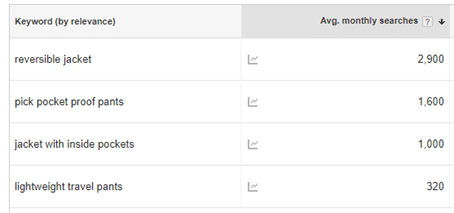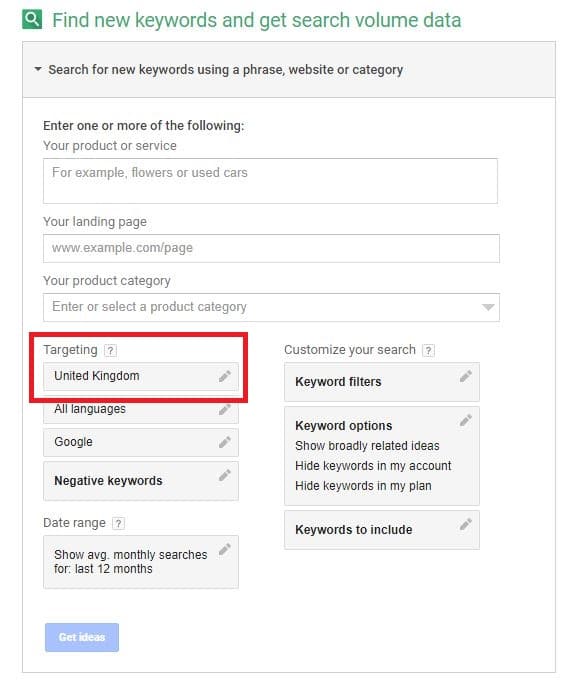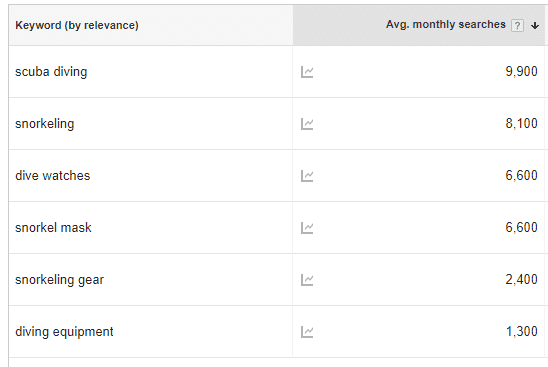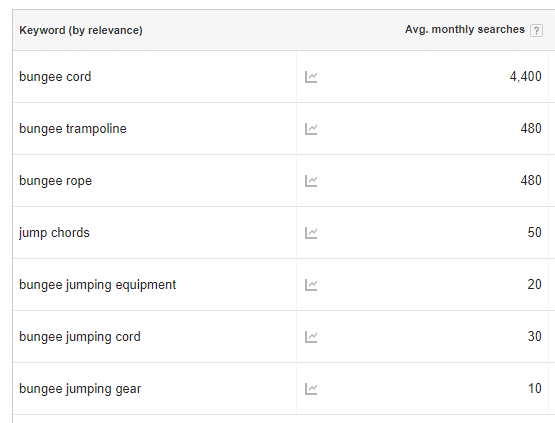There’s never been a better time to be in the booming eCommerce space.
According to Forbes, global eCommerce is expected to bring in $6.3 trillion in sales in 2023, and 20.8% of all retail purchases are expected to be made online. That’s huge!
The only downside? As the market heats up, so does the competition.
What if there was something that could increase your revenue and market share while giving you a leg up on the competition? An eCommerce market research strategy that enabled you to:
- Learn more about the wants and needs of your customers
- Predict changes in demand
- Adapt to changing market conditions
- Anticipate and produce the products consumers are looking for
The secret sauce that’s fueling the eCommerce success stories of the future is something that’s been around since the birth of search engines: keyword research.
Keyword research is SEO market research
Don’t let the name intimidate you. Keyword research is a form of eCommerce market research for the digital age. And unlike standard, resource-intensive market research – think focus groups, surveys and mountains of data that needs processing – effective keyword research involves tapping into a wealth of user-friendly data that’s readily available.
Keyword research, or more specifically, search volume data, gives you priceless insights into market demand for specific products and/or product features.
By looking at what terms people are searching for and how many people are searching those terms, you can leverage keyword research to:
- Make informed product line expansion decisions
- Choose the best international expansion opportunities
- Identify new customer segments
Intrigued? Read on.
How should you do keyword research for eCommerce businesses?
- Determine which search terms your site is already ranking for through Google Search Console
- Look into other keywords your target audience could be searching for through software like SEMrush and Ahrefs
- Note the volume and difficulty of potential keywords to see if they’re worth targeting for your specific brand and to discover additional information about your audience
1. Smart product line expansion starts with keyword research
A great way to boost sales and market share is by expanding your product line. Keyword research can prevent costly product launch fails by reporting the demand for specific product types and features.
To illustrate how eCommerce keyword research can help determine product direction, we’ll look at TravelSmith, an eCommerce business specializing in travel gear and apparel for men and women.

Let’s say TravelSmith has optimized all their product pages, regularly creates valuable content, and is ready to grow their sales and market share by expanding their product line.
How can Keyword Research help eCommerce Sites Decide on new Products?
Keyword research can help identify both the potential products to include in the expansion, as well as the demand for those products.
There are three keyword segments that can shed light on what TravelSmith’s target audience is searching for: existing products, landing pages, or product categories. We recommend first looking at product categories, as this will provide a broad view of the types of searches people are using to begin their journey.
In the search volume sampling below, we can see many users are searching for reversible jackets and pick pocket proof pants. What do these products say about TravelSmith’s customers? We can assume many of them are travelers who want to pack light, stay stylish, and protect their valuables.

Rather than guessing at what consumers want, TravelSmith now has proof of existing demand for two products that would be a perfect addition to their product line.
TravelSmith will still need to look at other factors before green-lighting a new product – existing competition and business viability of the product additions – but eCommerce keyword research provides invaluable insights on the wants and needs of their target audience.
2. Keyword research highlights international opportunities
If you sell products online that have high demand in other global markets, expanding your market share may be as simple as extending the region you’re targeting.
Thanks to the Google Keyword Planner’s location targeting abilities, keyword research can help you assess demand in different markets, providing valuable insights on the best geographic locations to expand into.

It can also identify cultural trends that may impact how you market your products.
For example, if TravelSmith decided to expand their eCommerce business to the U.K. market, keyword research would help them understand the high-value keywords that would attract buyers in the new market.
Case in point: while both the United States and the U.K. speak English, they frequently use different terms for the same thing. Like pants.

In the U.K. the predominant verbiage for pants is trousers. Exploring keywords during the market research for their eCommerce site wouldn’t just help TravelSmith identify demand for their existing products in the U.K. – it would also help TravelSmith frame those products in their new target audience’s language.
Another example of the importance of speaking your target audience’s language: the soccer vs. football distinction.
In the U.S., football and soccer are two different sports. But what’s known as ‘soccer’ in the U.S. goes by ‘football’ in the U.K.
The search volume data for the U.K. drives that point home.

Both keywords describe the same product, but for savvy sporting goods eCommerce brands looking to expand to the U.K, football boots is clearly the term to target in product pages and paid search.
Without these insights from keyword research, eCommerce brands could miss out on valuable opportunities to get their products in front of interested consumers in markets across the globe.
3. eCommerce Keyword Research helps you Identify new customer segments
You know your target audience like the back of your hand. But when it comes time to grow your sales, keyword research is the perfect tool to propel market research for your eCommerce brand and help discover new customer segments.
A good example of using keywords to expand customer segments is REI. REI targets multiple types of outdoor adventurers – climbing, hiking, running, cycling, etc. – with their outdoor clothing apparel and travel gear.

When REI wants to expand their target segments, eCommerce keyword research can provide the insights needed to choose a new segment and create product lines tailored to that lifestyle.
Let’s say REI is considering expanding their offerings to appeal to divers or bungee jumpers. Rather than investing in resource-intensive market research on what users say they’re interested in, keyword search volume research would highlight the actual type and volume of product demand for each group.
Below is a sampling of search volume for topics around both diving and bungee jumping.


When comparing the keyword search volume for the two groups, we can see there are significantly more searches for diving-related outdoor products than bungee jumper products.
Does that mean REI should expand their product line to target divers?
This is where additional SEO market research can come in handy.
- What are the buyer profiles for both groups? While there are fewer searches for bungee jumping products, as a group, bungee jumpers could be more motivated buyers.
- Is the barrier to entry for bungee jumping relatively low compared to the investment for diving gear?
- Divers are bound by geography and proximity to water. Is it mainly a destination activity, which means infrequent gear usage and a minimal need to repurchase?
- Are products for bungee jumping more cost effective to produce, store and ship than diving gear?
The best direction for REI to expand will depend on the answers to the questions above.
However, using keywords in eCommerce market research is a great jumping off point (no pun intended!) to figure out what product questions need to be asked.
Keyword research is just the beginning
Keyword research can play a pivotal role in performing market research for your eCommerce business to grow in the right direction.
But remember: it’s just a starting point.
When you look at your shortlist of possible expansion opportunities, from new products and market opportunities to potential new customer segments, consider these questions:
- Is there a lot of competition? There could be a high search volume for comfortable walking shoes, or a large audience segment that’s searching for camouflage diving tanks, but if all your competitors have already built a robust, fully optimized product catalog around those needs (alongside an aggressive marketing strategy), it may be a tough market to break into.
- Is there a reason that businesses aren’t targeting that region, audience or product? Your eCommerce keyword research may suggest that adding stainless steel diving flippers to your product line is a sure thing, but take some time to explore why that opportunity is even open. Are there unfavorable shipping costs, an audience with no disposable income or non-existent margins to consider?
- Does the expansion make sense for your business goals? The numbers add up and your team loves the idea. But that doesn’t mean a new opportunity is the right fit for your brand. Maybe you want to keep your product line minimal or stick with targeting a local market. No matter the reason, never lose sight of what matters most to your company.
If you follow these guidelines, keyword research could become your go-to tool for uncovering powerful eCommerce market research insights that help take your business to the next level.
Interested in using keyword research and other SEO strategies to grow your eCommerce business? Take a look at our SEO eCommerce offerings or talk to a digital strategy expert today!

